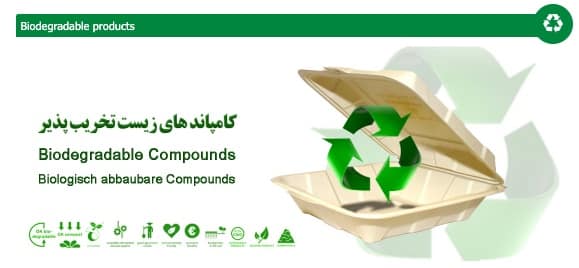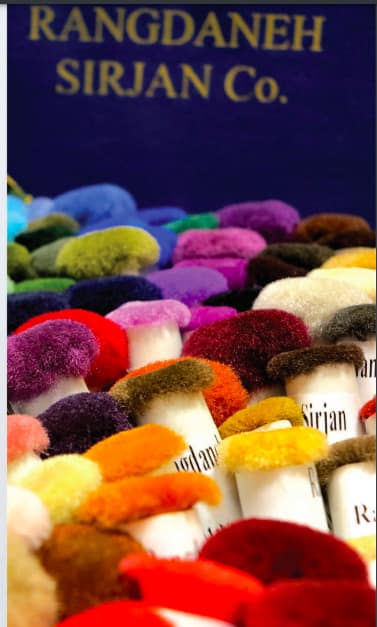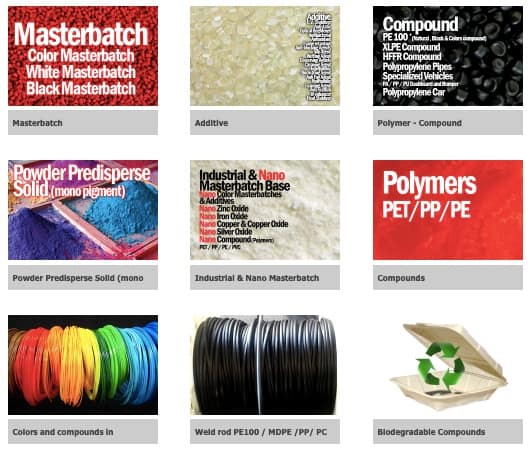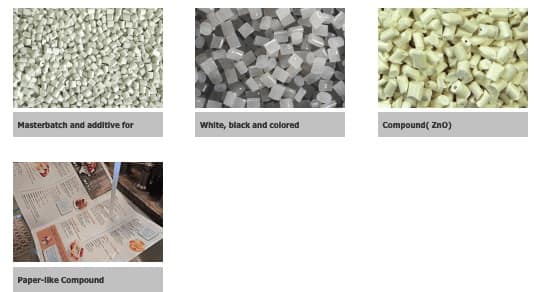Interview with Mr. Mansouri / Rangdaneh Sirjan company
By: Kohan Textile Journal
Rangdaneh Sirjan Company’s selection as a national and provincial sample exporter on numerous occasions demonstrates its strong position in the textile masgerbaches industry. The quantity and diversity of export products should always show a respectable increase over the previous year when defining the annual goals.
Begin with a brief overview of the founding, expansion, and success of the Rangdaneh Sirjan company.
Beginning its operations in 1996, Rangdaneh Sirjan Company has always taken the footsteps of progress with the aid of the most recent industrial and scientific advancements.
Rangdaneh Sirjan complex is currently one of the biggest and most dependable ones in the field of polymer and fiber manufacturing in the Middle East., with an annual capacity of 180,000 tonnes and the use of European machinery, unique technology, and formulation (patent).
Using cutting-edge laboratories and laboratory production samples, as well as accounting for optimal consumption parameters, this company’s research and development division continually contributes to producing standard products that meet customers’ preferences through modern technical expertise and ongoing research.

Rangdaneh Sirjan Company has succeeded in pushing forward with the aid of contemporary industrial and scientific advancements and creating high-quality goods in terms of the requirements of global knowledge, which was its primary objective.
Additionally, one of the collection’s strategic objectives is to support researchers’ ongoing work in the research and development department to develop innovative products and keep up with the worldwide polymer production market.
All of the Rangdaneh Sirjan Company’s resources are manufactured and created with the approval of the Ministry of Health, Treatment, and Medical Education, the certification of the Standard Institute, Science and Technology Park (Ministry of Science, Research, and Technology), and the support of the most renowned Italian business.

What is the status in Iran concerning the manufacture of masterbatches, particularly those utilized in textiles? By taking into account both production quantity and quality.
Color masterbatches and additives have been utilized much more frequently than in the previous ten years as a result of the growth of the textile industry and the vast range of color ranges needed for various applications.
Iran produces around a million tonnes of petrochemical polymers annually. It is standing in the area has improved due to higher-quality domestic petrochemical polymer ingredients and updated production and laboratory tools for product testing.
Does this industry have the capacity to export products and compete with global manufacturers on price and quality?
It is essential to highlight a few points concerning pricing competitiveness. In addition to the cost of raw materials, which in the case of masterbatches are essentially different polymers that petrochemical companies can obtain inside Iran, it is essential to pay attention to production-related issues if we are to lower the overall cost of a product.
Even though most raw materials are reasonably priced, if high-quality machinery and skilled manufacturing engineers are not employed, material waste will increase. It’s possible that making masterbatch for export would be challenging and expensive.
Alternatively, suppose the raw materials and production cycle are carried out with high technology. In that case, the necessary quality will be provided, and well-known Iranian companies, such as Rangdaneh Sirjan Company, a trailblazer in this area, will be able to export their goods.
Does Rangdaneh Sirjan Company conduct business internationally?
Yes, Rangdaneh Sirjan Company’s selection as a national and provincial sample exporter on numerous occasions demonstrates its strong position in the export industry. The quantity and diversity of export products should always show a respectable increase over the previous year when defining the annual goals.
How many products are made by Rangdaneh Sirjan Company for the textile industry?
• Masterbatches used in machine-made carpets and rugs
• Filament yarns and short fibers
• Polyester, polypropylene, and short polyamide fibers
• B.C.F. threads used in machine-made carpet, carpet tufting, cut and loop
• C.F. threads used in sewing, safety belts, protective fabric
• POY, F.D.Y. yarns for machine-made carpets, rugs, upholstery fabrics, socks, and sportswear
• Polyester, polyamide, and polypropylene fibers used in spinning cotton yarns, machine-made carpets, rugs, and needle felt
• Nonwoven sanitary textiles
• Spun bond, Melt Blown
• Types of S.S., SMS, SMMS
• Threads of B.C.F., C.F., POY, F.D.Y., D.T.Y., T.F.O., polypropylene, polyester, and polyamide used in machine-made carpet, upholstery textiles, curtain fabrics, socks, sportswear
• Masterbatch and additive of cotton-type polyester fibers for the production of Dope Dyed fibers
• Polypropylene sack and jumbo
• Bleach to produce P.S.F. polyester fibers from P.E.T. bottle flakes
• Polisher for the production of P.S.F. polyester fibers for printed carpets
One of the rare businesses that cling to the environment with an honest and commendable aim and the creation of ecologically friendly and sustainable products is Rangdaneh Sirjan. What objectives and initiatives do you have in this area?
By using high-quality, pure resources, effective machinery for mixing, and removing some elements hazardous to the environment from the finished products, this company has consistently strived to take significant action on environmental issues.
This company also intends to use biodegradable, biocompatible, and biobased polymers for bio uses and to improve and speed up the recycling of plastics.
Unfortunately, the textile industry is one of the most environmentally destructive sectors of the global economy, contributing significantly to water and environmental contamination. How could most of the Iranian textile industry be educated about the significance of eco-friendly and sustainable production in light of your invaluable experiences?
Regarding water pollution, it is essential to note that Rangdaneh Sirjan Company has attempted to employ physical and chemical ways to reuse the water from its production workshops through a reversible cycle by establishing a modern treatment plant.
The European Union, the United States of America, and environmental protection associations have set tight restrictions for polymer products to reduce environmental pollution caused by textile products.
To gradually educate the producers who do not pay enough consideration to ecological matters, it is necessary to organize international training courses, conferences, and exhibitions in Iran. If these producers do not heed, financial penalties will be levied on them.
In light of the normalization of international commerce, how would you rate domestic and foreign trade in the masterbatch and industrial additives industry this year?
In your opinion, what qualities distinguish an excellent and high-quality masterbatch in the textile business as an expert and producer?
• Color stability and product characteristics according to usage
• Agreement between the polymer basis and the produced products
• A high surface transfer resistance, a high percentage of moisture, a melting temperature, a transparent appearance, and an appropriate thermal resistance
• The distinction between the shade and color
• Assist in the final product’s manufacturing process
• Minimal consuming
• Uniform concentration





























